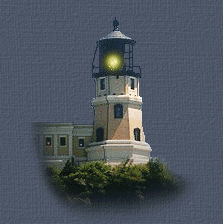|


 
Divine
Providence and Human Evil
By the Rev. Lee Woofenden
Bridgewater, Massachusetts August 24, 1997
 
Readings
Psalm
27:1-6
The
Lord is my light and my salvation--whom shall I fear?
The Lord is the stronghold of my life--of whom shall I be afraid?
When evil men advance against me to devour my flesh,
when my enemies and my foes attack me, they will stumble and fall.
Though an army besiege me, my heart will not fear;
though war break out against me, even then will I be confident.
One
thing I ask of the Lord, this is what I seek:
that I may dwell in the house of the Lord all the days of my life,
to gaze upon the beauty of the Lord and to seek him in his temple.
For in the day of trouble he will keep me safe in his dwelling;
he will hide me in the shelter of his tabernacle and set me high upon a
rock.
Then my head will be exalted above the enemies who surround me;
at his tabernacle will I sacrifice with shouts of joy;
I will sing and make music to the Lord.
Matthew 13:24-30
The
kingdom of heaven is like a man who sowed good seed in his field. But
while everyone was sleeping, his enemy came and sowed weeds among the
wheat, and went away. When the wheat sprouted and formed ears, then the
weeds also appeared.
The
owner's servants came to him and said, "Sir, didn't you sow good
seed in your field? Where then did the weeds come from?"
"An
enemy did this," he replied.
The
servants asked him, "Do you want us to go and pull them up?"
"No,"
he answered, "because while you are pulling the weeds, you may root
up the wheat with them. Let both grow together until the harvest. At
that time I will tell the harvesters, 'First collect the weeds and tie
them in bundles to be burned; then gather the wheat and bring it into my
barn.'"
Luke
12:4-7
I
tell you, my friends, do not be afraid of those who kill the body and
after that can do no more. But I will show you whom you should fear:
Fear him who, after the killing of the body, has power to throw you into
hell. Yes, I tell you, fear him. Are not five sparrows sold for two
pennies? Yet not one of them is forgotten by God. Indeed, the very hairs
of your head are all numbered. Don't be afraid; you are worth more than
many sparrows.
Divine
Providence #320; Heaven and Hell #302
If
we believed the way things really are--that everything good and true is
from the Lord and everything evil and false is from hell--we would not
attribute good things to ourselves and take credit for them, nor would
we attribute evil things to ourselves and make ourselves responsible for
them. Instead, we would focus on the Lord in everything good that we
think and do, and we would throw everything evil back into the hell that
it came from.
Sermon
This
morning I am bringing you some of the spirit of the Fryeburg New Church
Assembly. Even though I give two lectures and teach ten Flames (teen)
classes during the two week session, I still think of the Assembly as a
vacation. There, I am with family and good friends, some of whom I see
only at the Assembly. The Saco River flows by camp--and each year I make
sure to get out in a canoe at least once. There are woods to walk in,
beautiful mountains nearby, and simple living in a cabin--a break from
the computer, TV, and other distractions of modern living. It is a
perfect setting for a community of Swedenborgians to gather, live
together for a time, and learn about the teachings of our church, both
in theory and in practice.
This
year at the Assembly our topic for the second week was "Divine
Providence." My talk today comes from a lecture I delivered there
on August 15th (1997), titled "Divine Providence: The Tough
Cases." We do not have time for the full lecture, but I would like
to bring you some of the laws of divine providence that are especially
important for understanding evil and injustice in the world. These laws
come from Swedenborg's book Divine Providence (D.P.).
The
very first thing we need to understand is why God created the universe
in the first place. Without this, we can't possibly understand the
things God is doing to accomplish that goal--and why God allows so many
evil things to happen in our world.
Swedenborg
says the goal of creation is a heaven from the human race (D.P.
chapter 2). When Swedenborg says "a heaven from the human
race," he is talking about human community. God's goal in creating
the universe is to have a community of human beings in loving
relationship with each other and with God. This means the communities we
live in are not only a means to our spiritual development; they
are the goal of our spiritual development. If we can make our
communities more loving and heaven-like, we are helping God to achieve
his goal in creation.
However,
God is not content with merely temporary goals. If we achieved a loving
human community on earth, but later it backslid into selfishness and
greed, or simply ceased to exist, what would that brief moment of
goodness be, compared to the eternity of God? God looks primarily to
what is infinite and eternal--and attends to temporary and limited
things only in relation to their contribution toward what is infinite
and eternal (D.P. chapter 3).
If
we allow this to sink deeply into our minds, it will give us an entirely
different perspective on both the bad and the good things that happen to
us. When we humans experience disease, poverty, or the loss of a loved
one, we think of it is a tragedy. And these circumstances are
very painful. But from the Lord's perspective, they are nowhere near as
important as what is going on inside of us. If we become bitter
and self-absorbed through tragedy, this is a much worse tragedy than the
physical circumstances that triggered our bitterness. But if we become
more thoughtful and compassionate human beings through our experience of
personal and community tragedy, the temporary pain we feel will be far
outweighed by the permanent spiritual growth we experience through the
tragedy.
This
brings us to a third law of divine providence. Whatever our outward
circumstances, we have a choice about how to respond to them. In our
response, to put it in Swedenborg's words, we must act in freedom
according to reason (D.P. chapter 5). This also brings us to the
major reason why there is evil as well as good in the world.
Theoretically,
God could have created a universe in which there was no possibility of
evil. But God has a goal higher than simply preventing evil. God wants human
community. That means human relationships. And human relationships mean
freely chosen relationships. Perhaps God could have made us to
automatically understand and love each other. But that would be no
different than a computer programmer writing a subroutine that prints
"I Love You" on the computer screen. It wouldn't mean
anything, because it would be only a programmed response.
Consider
a marriage relationship. Would we be happy with arranged marriages in
which we had no choice? Not in our culture--and I suspect it doesn't
work all that well spiritually even in cultures where it is a
regular practice. No, for a marriage to be real, we must choose each
other as our partners, from love.
It
is the same in our relationship with God. If we had no choice except to
love God, our love would not be real. But since God is all good and all
truth, infinitely and eternally, the only way we could have any other
choice would be for God to allow some other possibility. That
possibility is the denial of goodness and truth--in other words, evil
and falsity. So God allows us to twist the goodness and truth that come
from him into evil and falsity because otherwise we could not be truly
human, nor could we have truly human relationships. We could not have a
loving human community--which is the goal of creation.
We
find ourselves in a situation where, through our own and others'
mistaken choices, we experience terribly painful and evil things that we
inflict upon each other. What can we do about this?
The
same freedom and rationality that enabled us to get off the track into
selfish and destructive behavior can be a tool in our hands to get us
back on track. God will never force us through outward circumstances to
believe and love good and spiritual things. But we can force ourselves
to do so (D.P. chapter 7).
Each
of us is able, in our own limited way, to know what is right and wrong.
Each of us is also able to make choices about which way we will go when
we are faced with decisions. As hard as it sometimes is, we need to make
the choice to believe and do what is good and right--even if that means
exercising an uncomfortable self-compulsion.
The
Lord does not expect us to be able to root out every false idea or
selfish motive that flits through our heads. But the Lord does want us
to take our lives in hand and avoid acting on those negative
impulses. To put it in Swedenborg's words, the Lord wants us to remove
evils as sins in our outward self just as if we were doing it on our
own; and if we do this, the Lord will remove those evils from our inner
self--and from our outer self as well (D.P. chapter 6).
What
does this mean? It means that when we have an impulse to do something we
know is wrong, we should stop ourselves from acting on that
impulse. If we will do this regularly, praying to the Lord for help,
then the Lord will gradually take away our desire to do that
wrong thing. If we do our part, and demand of ourselves that we make the
right choice, the Lord will do his part and, over time, free us from our
slavery--our addiction--to those wrong thoughts, feelings, and
behaviors.
Yes,
there is evil in our world. Yes, there is evil in our own lives. Some of
it we are personally responsible for because of bad choices we have
made. Much of it we are not personally responsible for. But we are
responsible for our reaction to it--and our response to each tragedy and
injustice that we see or experience will determine whether we join with
that particular evil and make it a part of ourselves, or whether we
resist it and help to overcome it, both in ourselves and in our
community.
However,
in all that we do, we will only be successful spiritually if we
recognize that it is really the Lord's divine providence running the
show, not our own intelligence. If we are willing to believe this, and
to put ourselves in the flow of divine providence, then both the good
and the evil things that happen to us will help move us toward the
Lord's goal in creation: a heavenly, human community of people
who live together in mutual love and understanding, with God at the
center.
 I I

Music: Forever and a Day
© 1999 Bruce DeBoer

|